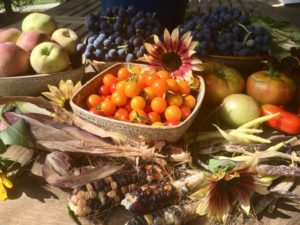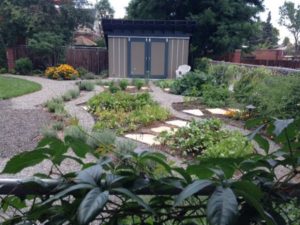Our Programs
EDF is the only completely free and non-clinical resource in Colorado—and one of very few nationally—that is accessible to everyone, regardless of income, insurance, health status, weight, diagnosis, race, gender, or sexual identity.
Our services are free, confidential, and operate on a walk-in basis (with the exception of some workshops and events where space is limited; these require RSVPs).
EDF is not a treatment center; instead EDF offers no-cost support, education, and advocacy programs within the community. EDF provides help to people who seek information and support prior to or after making the decision to seek treatment, as well as to those who do not have access to formal care. EDF aims to supplement treatment with no-cost support and to improve access to care by collaborating with other organizations and by providing appropriate referrals.
The Eating Disorder Foundation provides invaluable assistance through education, support, and advocacy initiatives to several groups – people with eating disorders, family members, friends, school personnel, parents and caregivers, healthcare providers, and the larger community, through the following services:
Support Groups
EDF has offered support groups since its founding in 2003, starting with a single support group devoted to the families and friends of those suffering from eating disorders. These support groups have demonstrated considerable impact on each individual as they work toward recovery, maintain their personal mental health, and build an ongoing community that is vital to healing.
Support groups are facilitated by licensed professionals and Master’s-level clinicians with the assistance of practicum graduate students.
Drop-In Support
Our home is open to you for support whenever you need it.
A Place of Our Own is a two-story revamped building that houses EDF’s support and education programs. Designed to be free-flowing and secure, the building also serves as headquarters for our staff and volunteers, and is surrounded by a spacious and inviting garden that’s open to visitors most of the year.
In addition to free support groups, A Place of Our Own has been designed to accommodate informal drop-in visits for those wishing to talk, for those seeking valuable alone time or for those who wish to meet people on the recovery journey. We’re ready to welcome you to A Place of Our Own, and hope that you’ll come to think of it as your home, too.
You can drop by, give us a call, or schedule a time to speak to a staff member for support, eat a meal in our kitchen, borrow a book from a library, or find a quiet space to hang out.
Open hours:
- Tuesday – 9am – 6pm
- Wednesday – 9am – 6pm
- Thursday – 9am – 6pm
- Friday – 9am – 4pm
- Saturday – 9am – 1pm
- Sunday/Monday – Closed
Resources and Referrals
EDF is able to provide resource navigation throughout the community. We offer support and referral information to more than 1,000 phone and website inquiries each year.
If you need help finding a therapist, dietitian, treatment center, etc. in Colorado that fits with your location and insurance, please give us a call, e-mail us, or use our “Contact Us” form. Please note that we are most familiar with providers in Colorado; if you are located elsewhere, we will do our best to direct you to a resource that can help you.
Education and Outreach
EDF presenters, most of whom have been personally affected by an eating disorder and/or are healthcare professionals, will talk about a variety of topics, including: body image and self-esteem, types of eating disorders, causes, signs and symptoms, treatment options, how to get help and how to ask for help. EDF provides free presentations and reference materials to approximately 50 schools per year at the elementary, middle, high school and college levels, as well as to parents, teachers, and community organizations statewide.
Want to schedule a presentation or invite us to a resource fair?
Coffee and Conversation Workshop Series
The Foundation hosts Coffee and Conversation workshops on a number of topics, and hosts meetings with a focus on education, networking, and resource sharing. These can include presentations from local therapists or community organizations, yoga or gardening workshops, trainings, movie screenings, group discussions, and more. Offered by dedicated volunteers and members of the treatment community, our workshops cover a wide and colorful variety of topics that aim to help members of our community recover, support their loved ones, and improve their quality of life.
In lieu of our previous binge eating support groups, we’re switching to the more popular workshop series, which will take place monthly. Individuals struggling with binge eating and compulsive overeating are encouraged to explore any of our groups, which are inclusive regardless of struggle or diagnosis.
Attendance at these workshops is always high and space is limited! To get first crack at registration for our workshops, sign up for our mailing list by requesting at info@eatingdisorderfoundation.org
See our upcoming workshops and events.
Interested in hosting a workshop? Contact us at info@eatingdisorderfoundation.org or 303.322.3373.
Mentorship
We strongly believe in the power of connection, meaningful conversations, and creating a community of likeminded individuals—factors we attribute to living a life towards recovery.
Earlier this year, EDF was pleased to announce the relaunch of its mentorship program. Now, over two dozen members of our community are starting on their journey toward recovery and resiliency together. This 10-week program will provide one-on-one support during weekly connections. If you want to participate, don’t miss out—applications are accepted on a rolling basis.
Therapeutic Garden
The Eatin g Disorder Foundation is excited about the myriad benefits of outdoor spaces for growth, nurturing, and stress relief. We work to create a space that feels welcoming, including areas to relax and eat meals in a safe place; an open green space for yoga; herbs and flowers for soothing and healing; and edible crops to improve personal relationships with food. Harvested flowers, herbs, fruits, and vegetables are free for members of the community to take home and use.
g Disorder Foundation is excited about the myriad benefits of outdoor spaces for growth, nurturing, and stress relief. We work to create a space that feels welcoming, including areas to relax and eat meals in a safe place; an open green space for yoga; herbs and flowers for soothing and healing; and edible crops to improve personal relationships with food. Harvested flowers, herbs, fruits, and vegetables are free for members of the community to take home and use.

Training for Future Professionals
EDF has joined with Regis University, Metropolitan State University of Denver, University of Colorado, Community College of Denver, Naropa University, Colorado Christian College, and Denver Seminary to assist students in fulfilling internship and practicum requirements for psychology, nutrition and eating disorder related degrees, and advanced degree programs. On average, EDF takes 2-3 undergraduate interns and 15 practicum students at the Master’s level annually, with the aim of increasing experience of eating disorder support among future treatment professionals.
Volunteer Program
EDF is one of the only places in the region where volunteers can access meaningful opportunities in the Eating Disorder field. With the exception of three paid staff members, The Eating Disorder Foundation relies entirely on volunteers!
Many EDF volunteers and committee members consist of local therapists, dietitians, doctors, psychiatrists, parents, students, community service volunteers, and other community members joined together to support EDF’s mission. On average, EDF has 75 volunteers who provide more than 4,000 volunteer hours each year. Our volunteers are engaged in facilitating our signature support groups and workshops as well as our educational outreach to schools and colleges throughout Colorado. EDF volunteers are present at over 25 fairs and conventions each year to educate the general public about eating disorders.
Advocacy
The Eating Disorder Foundation continues to be an active member of national networks. In addition, we facilitate networking among eating disorder professionals with a focus on education and resource sharing; work with local officials to bring eating disorder issues to the regulatory level; and collaborate with treatment centers, treatment professionals, and health insurance companies to better address eating disorder issues. We believe in advocating for our community on personal and collective levels.